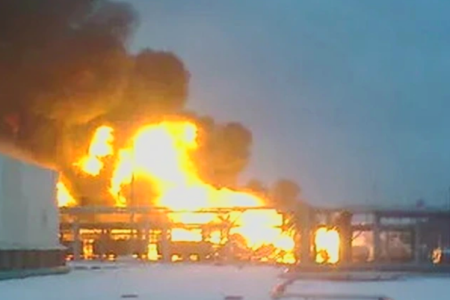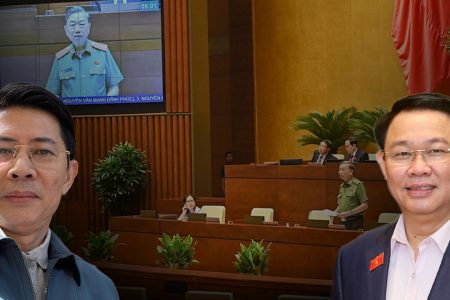
“We interviewed more than 1,500 people, but 99% ended their self-introductions with the affirmation ‘No matter how hard we work, we will do our best.”
“It would be great if those were the words of people who really want to improve their skills or learn technology, but not really.”
In an interview with the BBC, Mr. Koakutsu Yasuo, Professional Director of Eco Lead Trade Union, based in Ibaraki, Japan said so.
The Japanese Ministry of Health, Labor, and Welfare recently said that in 2020, Vietnam overtook China to become the country with the most foreign workers in Japan for the first time.
Vietnam has become the country having the most workers in Japan for the first time, with 443,998 people. China is in second place with 419,431 employees and the Philippines is in third place with 184,750 employees.
But bringing “many people to Japan is not necessarily good,” Mr. Koakutsu Yasuo told the BBC.
Shinkansen, a high-speed train running over 300km/h, is popular in Japan
He gave a view on the difficulties of working with the Vietnamese labor export company.
“Need to respond quickly when there is an incident: respond to the trainee and respond to the receiving enterprise.
We want the sending company to increase Japanese language training. The lack of communication between the trainee and the employer will cause a great impact when the two sides do not understand each other.
The sending company needs to listen to the interns and the employer, and in some cases need to apologize quickly.”
Mr. Koakutsu Yasuo said how his union solved these problems.
“Concerning the problems, we reported and discussed with the heads of each company dispatched via Line, Skype and Messenger.
In terms of work content, we provide manuals and printouts for specialized vocabulary.
When it is necessary to resolve a problem at the site, if there is no interpreter from the sending company, we will receive translation assistance from the other sending company.
In case a trainee does not listen to the interpreter because he is an employee of another sending company, we only have to patiently direct it regularly.”
On November 13, 2020, the National Assembly of Vietnam officially passed the Law on Vietnamese workers working abroad under contracts.
Some new points in this law can be reviewed such as the expansion of Vietnamese workers to work abroad; adding incentive policies to improve technical and professional qualifications for workers working abroad in line with the labor market, and promote and efficiently use the labor force returning from abroad.
Training problem
Recently, there have been a number of cases of violating Japanese laws and regulations related to Vietnamese citizens and trainees, causing negative public opinion.
At a workshop in November 2020, Minister of Labor, Invalids and Social Affairs, Dao Ngoc Dung, confirmed that there are still many shortcomings that need to be resolved when implementing the cooperation program between the two countries.
Specifically, trainees who violate the law, run away, live illegally …

According to the minister, the main reason is not performing well in the selection, foreign language training, and orientation education for trainees before heading to Japan.
Two people interviewed by BBC both said that the workers’ poor Japanese language skills led to mistakes in their jobs.
Getting the wrong tools, preparing the wrong materials … are the simplest things.
Reply to BBC News in Vietnamese, Mr. Nguyen Minh Hoa, director of Hoso Japanese Training Center, has studied and worked in Japan for many years:
“Japan is an industrialized country, the Japanese have high self-esteem and are demanding. If the Vietnamese want Japanese to hire them, they have to satisfy them.”
“One of our differences is that we spend more time teaching Japanese to our students than elsewhere. Even when the workers came to Japan, we continued to train.”
“We teach our employees cultural differences with easy-to-understand, concrete, practical examples. For example, the Japanese side requires people to separate household waste.”
“They divided mainly into two categories: burnable garbage and non-burnable garbage. There are places where strict requirements are still divided into specific categories such as plastic bottles, cans; Plastic shells and bags; Bottles, glass cans … ”
“Each type of trash has a dedicated bag with a different color. Many Vietnamese workers refuse to classify garbage according to the regulations where they live, even though they have been shown how to classify it, making many people complain.”
Mr. Nguyen Van Hung, who lives and works in Tokyo, the most technically qualified staff of the Keeper Technical Laboratory company, told BBC News Vietnamese:
“The Japanese highly appreciate Vietnamese workers in their hard work, fast learning, fast work, and rapid adaptation to the environment. For example, hot weather, snowfall, and still get the job done.”
“Most of the time, Vietnamese workers just learn very fast, watch once and they can do it themselves.”
But he also said that in their work and in their lifestyle, they revealed many shortcomings:
“Vietnamese do not respect, obey the time regulation, although it was reminded in advance, but did not pay attention from the beginning. Failure to comply with the rules, the order of steps at work. ”
“There is a case in a wood processing company, the trained workers always have to check before putting the wood in the stamp.”
“But for a while, someone skipped that check, which resulted in the wooden stick being deviated from the mold. While the machine was still running, he put his hand in to adjust, resulting in injury.”
On April 23, 2021, at the headquarters of the Ministry of Foreign Affairs of Japan, Vietnamese Ambassador Vu Hong Nam had a working session with the National Police Agency and the representative of the Ministry of Foreign Affairs of Japan on strengthening the measures to prevent violations of the law of Vietnamese people in Japan.
News of the Embassy of Vietnam in Japan said: “Along with the increase in the number of Vietnamese in Japan (about 500,000 people), the crime situation of Vietnamese people in Japan is on the rise in terms of quantity and severity.”
“In particular, crimes such as organized theft, illegal residence, use of fake papers, kidnapping, extortion, drugs, gambling, … are increasingly prominent in the Vietnamese community in Japan.”
Thoibao.de (Translated)




























